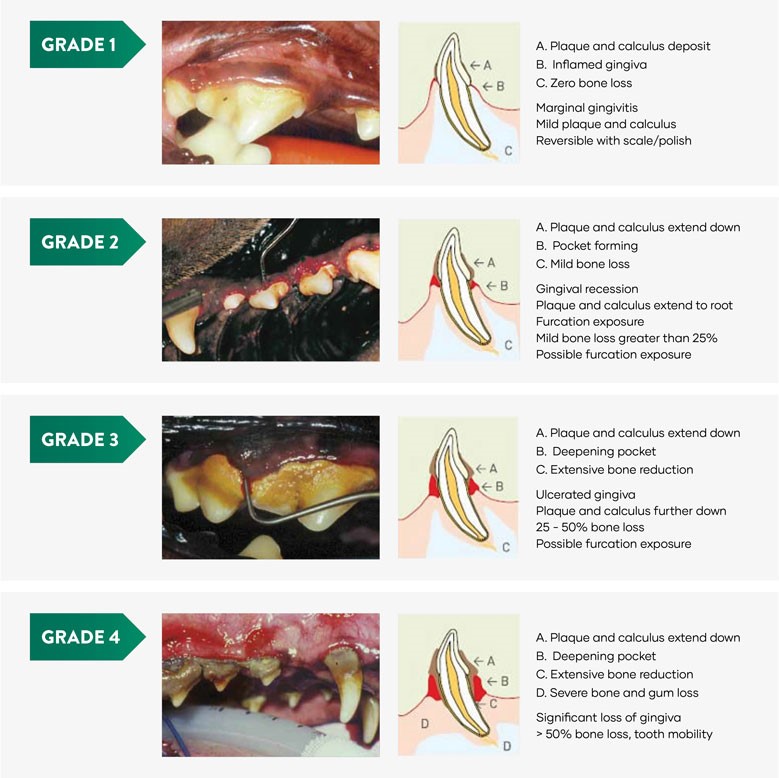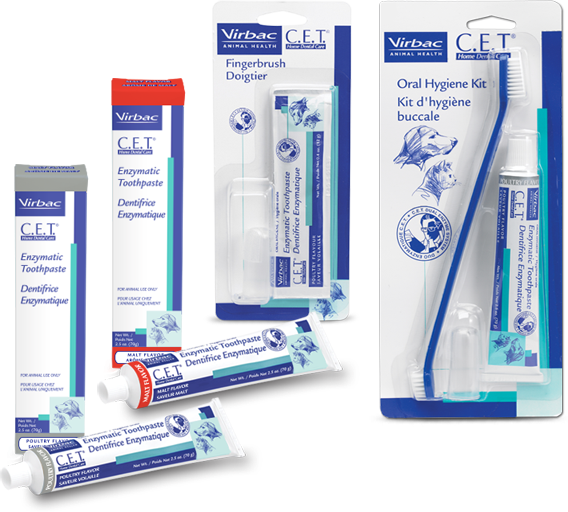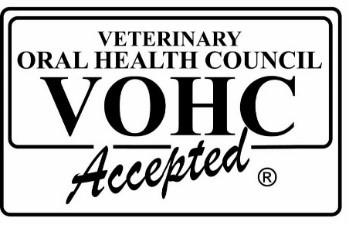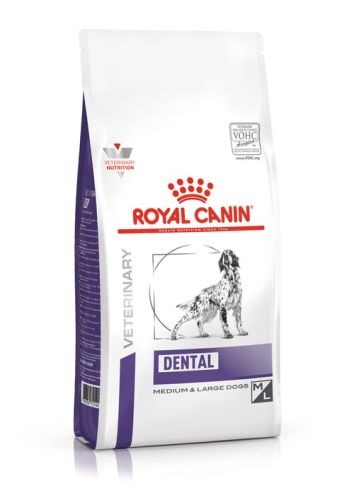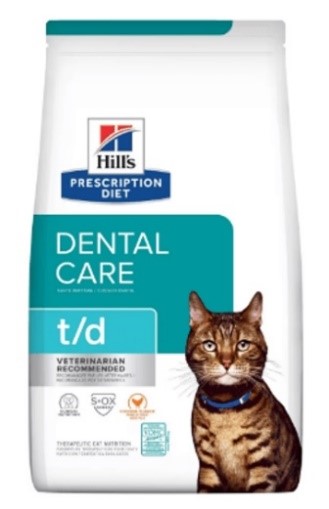The Importance of Good Oral Hygiene in Pets
The understanding of the critical role that oral hygiene plays in the health and longevity of our pets has significantly improved over the past 15–20 years. Dental disease in animals progresses in much the same way as it does in humans.
Plaque (a soft, furry bacterial film) begins forming on the teeth within minutes of eating. If not removed, this plaque hardens into tartar, a concrete-like brown substance, within just 24 hours. Tartar is extremely hard and cannot be removed by brushing alone; it requires professional cleaning with an ultrasonic scaler. Attempting to chip it off manually can damage the tooth’s surface, increasing the risk of future, more aggressive dental disease.
Unlike humans, pets do not brush their teeth daily, which means tartar accumulates much more quickly. This can lead to an earlier onset of dental issues. As tartar builds up beneath the gum line, it causes gingivitis (inflammation of the gums), which can progress to chronic infection. Over time, this affects the teeth and the surrounding bone and tissues, resulting in chronic pain and discomfort.
Even more concerning, studies have shown that chronic oral inflammation can enter the bloodstream and contribute to early degeneration of vital organs—including the kidneys, liver, and heart—ultimately reducing a pet’s life expectancy.
Maintaining good dental hygiene through regular brushing, dental check-ups, and professional cleanings is essential for your pet’s overall health and well-being.
What affects the rate of tartar build up?
The rate at which tartar builds up can vary greatly between individual pets. Several factors contribute to this variation, including:
- Oral Conformation: The shape and alignment of a pet’s mouth and teeth can influence how easily plaque accumulates.
- Chewing Action: Pets that chew more actively, especially on appropriate dental chews or toys, may naturally remove more plaque.
- Diet Choice: Soft, sticky foods tend to promote plaque formation, whereas certain dry or specially formulated diets can help reduce it.
Because of these variables, dental disease affects each animal differently.
Dental disease is assessed on a scale from 1 to 4 based on the severity of plaque, tartar, and gum inflammation. See the chart below for a breakdown of each grade
Progression and Complications of Dental Disease
Grades 1 and 2 dental disease are completely reversible with a professional prophylactic cleaning. However, if left untreated, these early stages can progress to Grade 3 and eventually Grade 4, resulting in permanent damage to the teeth and the supporting structures that anchor them in the gums. At this stage, extraction of the affected teeth is often the only way to relieve pain and resolve infection.
Feline Resorptive Lesions (FORLs)
In cats, a particularly painful and common dental complication is the Feline Odontoclastic Resorptive Lesion (FORL). These lesions cause the tooth structure to break down, leading to pain, inflammation, and eventual tooth loss.
See image below for a visual example.
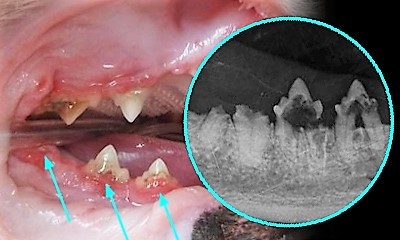
Moral of the Story: Prevention is Key to a Long, Healthy, Pain-Free Life
Dental disease can be painful and harmful—but it’s largely preventable with the right care.
Signs of Dental Disease in Your Pet
Watch out for these common indicators:
- Smelly breath
- Red or inflamed gums
- Visible tartar on the teeth
- Chewing only on one side
- Excessive drooling
- Bleeding gums
- Aggression or discomfort when touched around the mouth
- Refusing to eat dry food
At-Home Dental Care: What You Can Do
You play a vital role in keeping your pet’s mouth healthy. Here are some ways to help prevent dental disease:
- Daily tooth brushing using a pet-safe toothbrush and veterinary toothpaste
- Dental diets and treats approved by the Veterinary Oral Health Council (VOHC), such as Hill’s t/d or Royal Canin Dental. Look for the VOHC seal of approval on products.
- Annual check-ups – During your pet’s yearly vaccination appointment, we always assess oral health.
Even with the best home care, some pets are genetically predisposed to dental disease due to poor oral conformation. For these patients, we recommend more frequent check-ups and prophylactic cleanings to prevent the early onset of painful secondary conditions.
You’re in Expert Hands
All veterinarians in our clinic have undergone additional training in veterinary dentistry, ensuring your pet receives the most current, effective dental care and advice available



